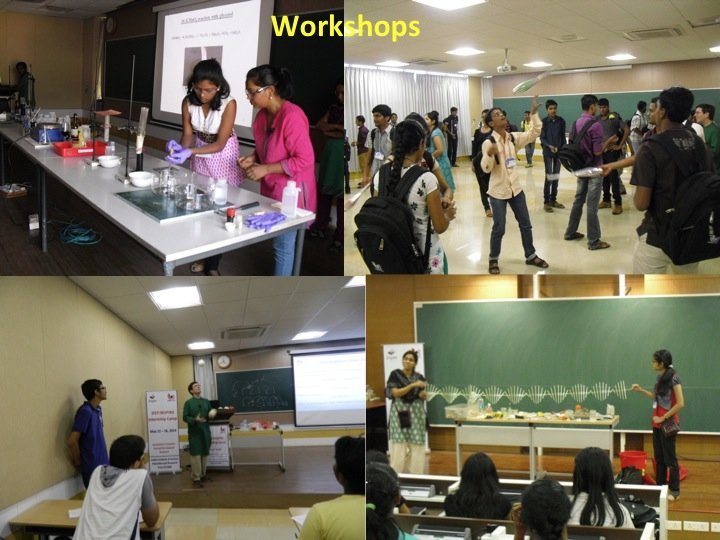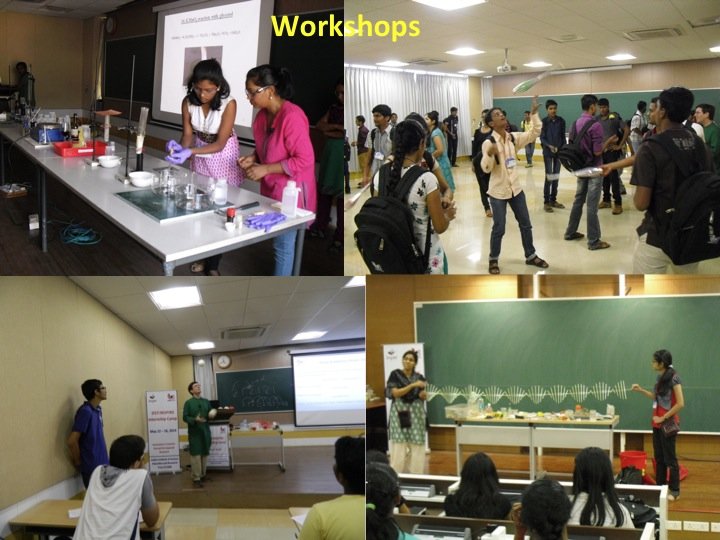
Science, today, is an integral part of our lives. While we recognise that medical and technological advances that have improved the quality of our everyday lives (vaccines and vehicles respectively, for example), we are less aware that these developments arose out of research in the basic sciences.
In spite of its indispensible presence in our lives, few people choose to pursue science, including in India. The progress of a country, however, is often welded to its progress in scientific research and advances. Recognizing this, the Department of Science and Technology (DST) has started a few programs to encourage academic engagement with the sciences.
One such program, Innovation in Science Pursuit for Inspired Research (INSPIRE), aims to spread the awareness and the joy of science to students across India. The program targets youth at three different levels — at the school level through scholarships for science projects (6th-9th standards) and science camps (11th standard); at the undergraduate level through scholarship programs; and at higher levels encouraging youth to seek academic careers in science. While the INSPIRE initiatives have been successful, the science camps have been the flagship activity of the program in terms of impact. I spoke with program coordinators and organizers of several camps to gain insight into the program and its implications.

The ‘INSPIRE camp’, as it is popularly known, is a 5‑day boot camp for students (of 11th standard) in scientific research. There are over 250 such camps held annually all over India, in many different districts and remote locations, ranging from Ujjain to Gorakhpur, Dharwad (Karnataka) and Jammu to name a few. “As the students come from a number of districts, they tend to travel as far as about 200 km for the camp. A regular year receives nearly 350 applications,” said Nagaraja Hegde, the coordinator at Karnataka University in Dharwad. Of these, around 150 students are selected based on their performance in the 10th examinations.
At the camps, which are coordinated by scientists and held at research institutes, students interact with and attend lectures by noted scientists from different fields, referred to in INSPIRE lingo as Mentors. Mentors range from heads of institutions and universities to educators and scientists from different fields. Institutes like the Inter-University Center for Astronomy and Astrophysics (IUCAA), Agarkar institute, Regional center for Biotechnology (RCB), the Indian Institute of Science (IISc), Oceanology Research Institute in Goa and the Indian Institutes of Science Education and Research (IISERs) host regular camps.
Students also spend time doing hands-on activities, which vary based on the host institute. The activities can be simple — like walks around a local herbarium or garden to identify and classify vegetation, or blood typing with antibodies. The coordinator for the program at IISER, Pune, Sheela Donde said, “The students are quite happy doing things with their hands and learning, rather than sitting through lectures”.
Sometimes students do enquiry-based experiments like analyzing the potability of water, where they plate a diluted sample of water on agar plates to test for bacterial contamination. Mrutyunjay Suar of KIIT, Bhubaneshwar said, “We concentrate on experiential learning to ignite their fires”.
One of the regular mentors at the Pune camp is Arvind Gupta, an inspiring educator who refers to himself as the ‘Toy Maker’. He has pioneered the idea of making toys or models out of simple materials, each illustrating a scientific concept. This piques the children’s curiosity, which can, in turn, spark creativity. His sessions, Donde said, are always much appreciated.
In addition, students have ample time to interact with mentors on a one-to-one basis. This is when they are encouraged to talk, discuss and question. “The students are so enthusiastic that it energizes us”, said Hegde. They ask questions in big auditoriums as well as in small discussion groups and imbibe the knowledge. As the days go by, LS Shashidhara of IISER, Pune pointed out, the experience instills a sense of confidence in the students.

The program is, however, not without its issues. The selection of just the top 1% students who score high in the 10th board exams leaves behind those who may have an aptitude for science but do not score high on national or state tests. Arvind Gupta urged, “I strongly feel that these camps should not be confined to a select group of students. The base should be widened and science through activities should be integrated into the curriculum”.
While the coordinators did agree that this might not be the best method for selection, the huge number of applications forces them to choose, and test scores seem fair and best. Another problem, common in states like Rajasthan and those in the Northeast, is enrolling girl students. Continuity seems to be an issue as well. It is essential to provide the students, and more importantly the participating schools, with some sort of mentorship and support that continues on after the camp. DST is reportedly taking steps to ensure this by reaching out online and maintaining contact with the students who attend the camps.
A step in the right direction to address these issues seems to be the yearly meeting among coordinators of the camps. They come together, share their successes, failures and discuss the issues faced. It is a support group that works together towards figuring out unique solutions to better the INSPIRE camp experience for all.
Though simple in concept, the INSPIRE camp program works on many levels. Researchers, who are used to scientific jargon even while teaching graduate students, welcome the challenge of simplifying scientific concepts. Students gain tremendous exposure from visiting research institutes. They also have the opportunity to interact with other students from different districts and build networks, which they apparently often do.
Another rewarding session is the interaction with parents. The program holds a session for parents where researchers talk to them about many career options within the sciences, opening their eyes to futures beyond medicine and engineering.
Over the five years of this program, has it inspired students to take up and study science? I was told that is precisely what DST is trying to do currently. It is conducting a study to assess the success of the program. But is this truly the measure of success of such a program? “It is not about attracting students to basic sciences but rather to research in science and technology” clarified LS Shashidhara.
The program, whatever its cons, and regardless of the eventual career choices of the participants, increases awareness about the sciences, and hopefully instills a curiosity to know more and be cognizant of scientific advances. In the present age, as science percolates through every aspect of one’s existence, a more scientifically aware society will be a more informed one.
Further reading:
- http://www.vigyanprasar.gov.in/index.asp
- http://www.arvindguptatoys.com/
- https://www.ted.com/talks/arvind_gupta_turning_trash_into_toys_for_learning
- http://www.ias.ac.in/resonance/
- http://www.kscst.iisc.ernet.in/spp.html
- http://www.mavipamumbai.org/